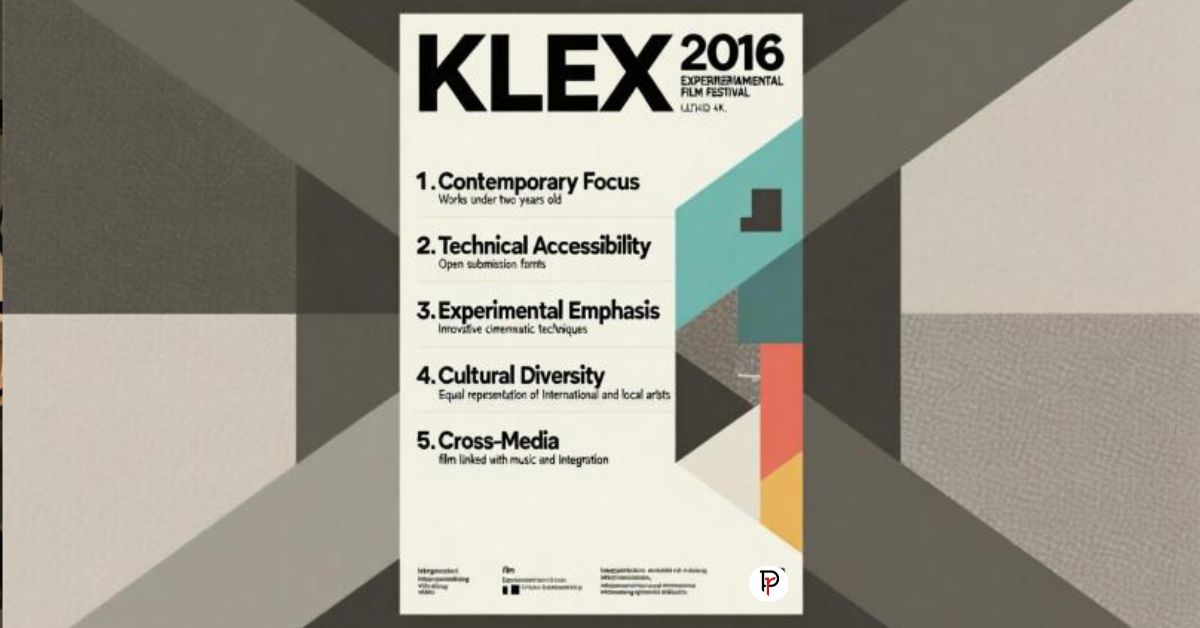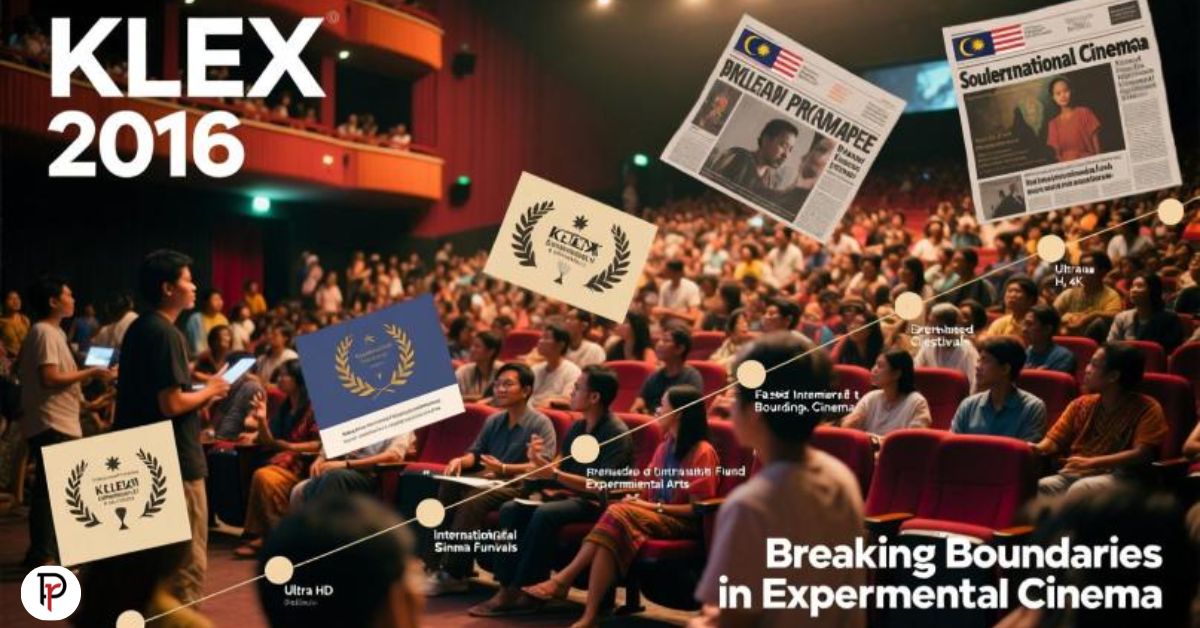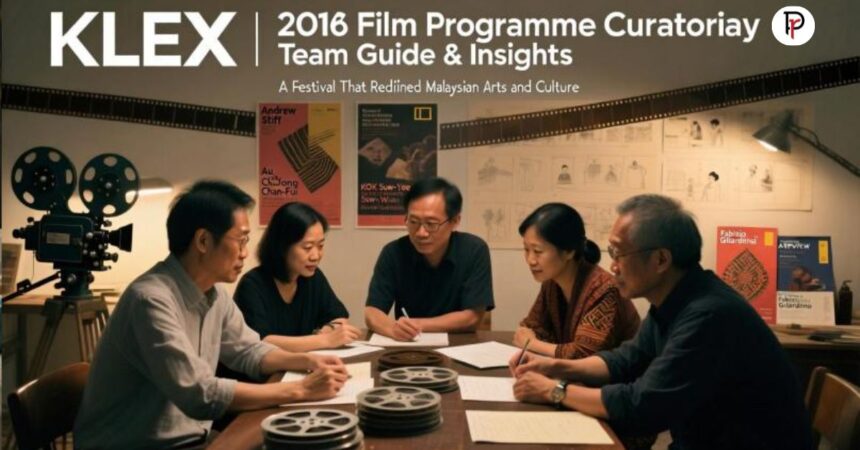The Kuala Lumpur Experimental Film, Video & Music Festival (KLEX) emerged as Malaysia’s premier platform for experimental and independent arts, challenging conventional boundaries between different creative mediums. Since its inception, KLEX has provided artists with unprecedented opportunities to showcase innovative work that pushes artistic limits and explores new forms of expression. The festival’s commitment to experimental art has made it a crucial cultural institution in Southeast Asia’s creative landscape.
The 2016 edition of KLEX represented a pivotal moment in the festival’s evolution, bringing together diverse voices and perspectives through carefully curated programming. This year’s festival demonstrated the power of collaborative curation in creating meaningful artistic experiences that resonated with both local and international audiences. The success of KLEX 2016 can be attributed largely to the expertise and vision of its dedicated curatorial team.
Understanding the role of curators in experimental film festivals reveals the complex process behind programming decisions that shape artistic discourse. The KLEX 2016 film programme curatorial team brought together individuals with varied backgrounds and expertise, creating a dynamic collaborative environment that enhanced the festival’s artistic impact and cultural relevance.
The Visionary Programming of KLEX 2016
The 2016 film programme at KLEX showcased an extraordinary range of experimental cinema that challenged traditional narrative structures and visual conventions. The curatorial approach emphasized works that pushed technological boundaries while exploring themes relevant to contemporary Malaysian and Southeast Asian contexts. This programming strategy created dialogue between local artists and international practitioners, fostering cross-cultural understanding through shared artistic exploration.
The festival’s acceptance criteria required submissions to be completed after January 1, 2014, ensuring contemporary relevance while allowing sufficient time for artistic maturation. This timeframe enabled the curatorial team to select works that reflected current artistic trends and social concerns. The technical requirements, including DVD submissions and online file transfers, demonstrated the festival’s commitment to accessibility while maintaining professional standards.
Key Programming Elements of KLEX 2016:

- Contemporary Focus – Works completed within two years of the festival
- Technical Accessibility – Multiple submission formats accepted
- Experimental Emphasis – Priority given to innovative cinematic approaches
- Cultural Diversity – International and local artists represented equally
- Cross-Media Integration – Film programming connected with music and video art
The curatorial process involved extensive viewing sessions, critical discussions, and collaborative decision-making that ensured programming quality and thematic coherence. Each selected work underwent rigorous evaluation based on artistic merit, technical innovation, and cultural significance. This thorough approach resulted in a programme that maintained high artistic standards while remaining accessible to diverse audiences.
The 2016 programme structure balanced established artists with emerging voices, creating opportunities for artistic dialogue across generational and cultural boundaries. This inclusive approach helped establish KLEX as a platform that valued both artistic excellence and community building within the experimental arts sector.
ALSO READ THIS POST: KLEX Film Programme Curatorial Team 2014 – A Creative Legacy
The Expert Minds Behind the Selections
The KLEX 2016 film programme curatorial team comprised five distinguished professionals who brought diverse perspectives and expertise to the selection process. Andrew Stiff, Au Sow-Yee, Chris Chong Chan-Fui, KOK Siew-Wai, and Fabrizio Gilardino each contributed unique insights that shaped the festival’s artistic direction. Their collective experience spanned different aspects of experimental cinema, from production and criticism to education and cultural advocacy.
This diverse team composition ensured comprehensive evaluation of submitted works from multiple artistic and cultural viewpoints. Each curator brought distinct expertise areas that complemented the others, creating a well-rounded assessment process that considered technical innovation, narrative experimentation, and cultural relevance. The collaborative approach fostered rich discussions about artistic merit and programming decisions that enhanced the festival’s overall quality.
Curatorial Team Expertise Areas:
- Experimental Film Production – Direct experience creating innovative cinema
- Film Criticism and Analysis – Academic and journalistic perspectives on contemporary cinema
- Cultural Programming – Experience in festival organization and artistic curation
- International Connections – Networks within global experimental film communities
- Educational Background – Teaching and mentorship in film and video arts
The team’s decision-making process involved multiple viewing sessions where curators discussed individual works and their potential contribution to the overall programme narrative. This collaborative approach ensured that personal biases were balanced by collective wisdom, resulting in programming decisions that reflected the festival’s artistic goals rather than individual preferences.
Regular team meetings throughout the curation process allowed for ongoing refinement of selection criteria and programming themes. These discussions helped identify emerging patterns in submitted works and allowed curators to make informed decisions about how individual pieces would contribute to the festival’s overall artistic statement.
Collaborative Curation Methodology
The KLEX 2016 film programme curatorial team employed a structured approach that balanced individual expertise with collective decision-making. Initial screenings involved individual curator assessments, followed by group discussions that explored different interpretations and perspectives on each work. This methodology ensured thorough evaluation while fostering creative dialogue among team members.
| Curation Stage | Process | Team Involvement | Duration |
| Initial Screening | Individual viewing and assessment | All five curators separately | 2-3 weeks |
| Group Discussion | Collective evaluation and debate | Full team meetings | 1 week |
| Programming Design | Thematic organization and flow | Collaborative planning | 1 week |
| Final Selection | Confirmation and backup choices | Consensus building | 3-4 days |
Quality control measures throughout the curation process included multiple viewings of shortlisted works and detailed documentation of selection rationale. This systematic approach helped maintain consistency in programming standards while allowing for creative flexibility in thematic development and artistic risk-taking.
Achievements and Impact of the 2016 Programme

The KLEX 2016 film programme achieved significant recognition within both Malaysian and international experimental film communities, establishing new benchmarks for festival programming in Southeast Asia. The curatorial team’s selections demonstrated sophisticated understanding of contemporary experimental cinema while maintaining strong connections to local cultural contexts. This balance between international relevance and cultural specificity became a defining characteristic of the programme’s success.
Audience response to the 2016 programme exceeded expectations, with screenings drawing diverse crowds that included established film enthusiasts, emerging artists, and curious newcomers to experimental cinema. The programming succeeded in making challenging artistic works accessible without compromising their experimental nature. This accessibility helped expand the festival’s audience base while maintaining its commitment to artistic innovation.
Programme Achievements Include:
- Increased Attendance – Higher audience numbers compared to previous editions
- Critical Recognition – Positive reviews in arts and culture publications
- Artist Development – Platform for emerging Southeast Asian filmmakers
- Cultural Exchange – International artist participation and collaboration
- Educational Impact – Workshops and discussions accompanying screenings
The long-term impact of the 2016 programme extended beyond the festival dates, inspiring ongoing artistic collaborations and influencing subsequent experimental film programming in the region. Several works that premiered at KLEX 2016 went on to achieve recognition at other international festivals, demonstrating the curatorial team’s ability to identify significant artistic contributions early in their exhibition careers.
The programme’s success also influenced funding and support for experimental arts in Malaysia, with government and private sector organizations recognizing the cultural value of supporting innovative artistic expression. This increased support created opportunities for future festival editions and related cultural programming throughout the year.
Legacy and Continued Influence
The KLEX 2016 film programme curatorial team established programming models that influenced subsequent festival editions and other cultural events throughout Southeast Asia. Their collaborative approach to curation became a template for inclusive programming that balances artistic excellence with cultural diversity. The methodologies developed during this edition continue to inform experimental film curation practices in the region.
The team’s commitment to supporting emerging artists while maintaining high programming standards created a sustainable model for festival development that benefits both established and developing arts communities. This approach helped establish KLEX as a crucial platform for artistic development in the region’s cultural ecosystem.
Building Bridges Through Experimental Cinema
The success of the KLEX 2016 Film Programme Curatorial Team demonstrates the transformative power of collaborative artistic curation in creating meaningful cultural experiences. Through their careful selection and programming of experimental works, these five curators helped establish new standards for festival programming while supporting artistic innovation and cultural exchange. Their work created lasting impacts that continue to influence experimental film presentation and appreciation throughout Southeast Asia.
The team’s achievement lies not only in their individual expertise but in their ability to work together effectively, creating programming that reflected collective wisdom while maintaining distinct artistic vision. This collaborative approach offers valuable lessons for cultural programming that seeks to balance artistic excellence with accessibility and community engagement.
The legacy of the KLEX 2016 film programme curatorial team extends beyond their specific contributions to encompass broader questions about the role of curation in contemporary arts presentation. Their work demonstrates how thoughtful programming can create bridges between different artistic communities while fostering appreciation for experimental and innovative creative expression in diverse cultural contexts.
Frequently Asked Questions
1. How were the KLEX 2016 film programme curators selected for their roles?
The curators were chosen based on their expertise in experimental cinema, cultural programming experience, and ability to contribute diverse perspectives to the selection process.
2. What was the total number of film submissions received for KLEX 2016?
While exact submission numbers aren’t publicly available, the festival typically received hundreds of entries from both local and international artists during this period.
3. Did the curatorial team provide feedback to artists whose works weren’t selected?
The team focused primarily on selected works due to time constraints, though some general feedback was available through festival workshops and discussions.
4. Were there any specific themes or artistic movements that influenced the 2016 programming decisions?
The programming reflected contemporary concerns about technology, identity, and cultural change, though no single theme dominated the selection process.
5. How did the curatorial team balance commercial appeal with artistic innovation in their selections?
The team prioritized artistic merit and experimental value over commercial considerations, staying true to KLEX’s mission of supporting innovative cinema regardless of mainstream appeal.
